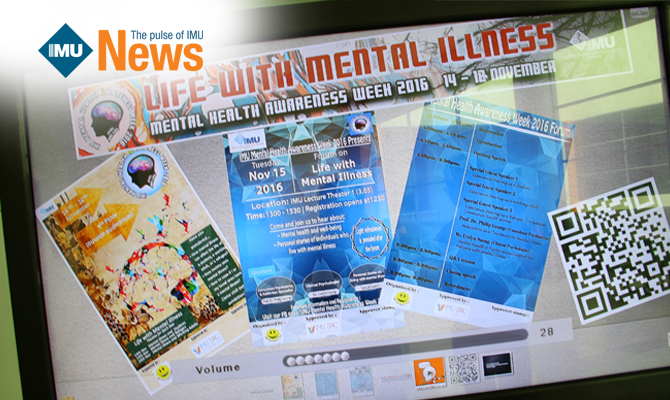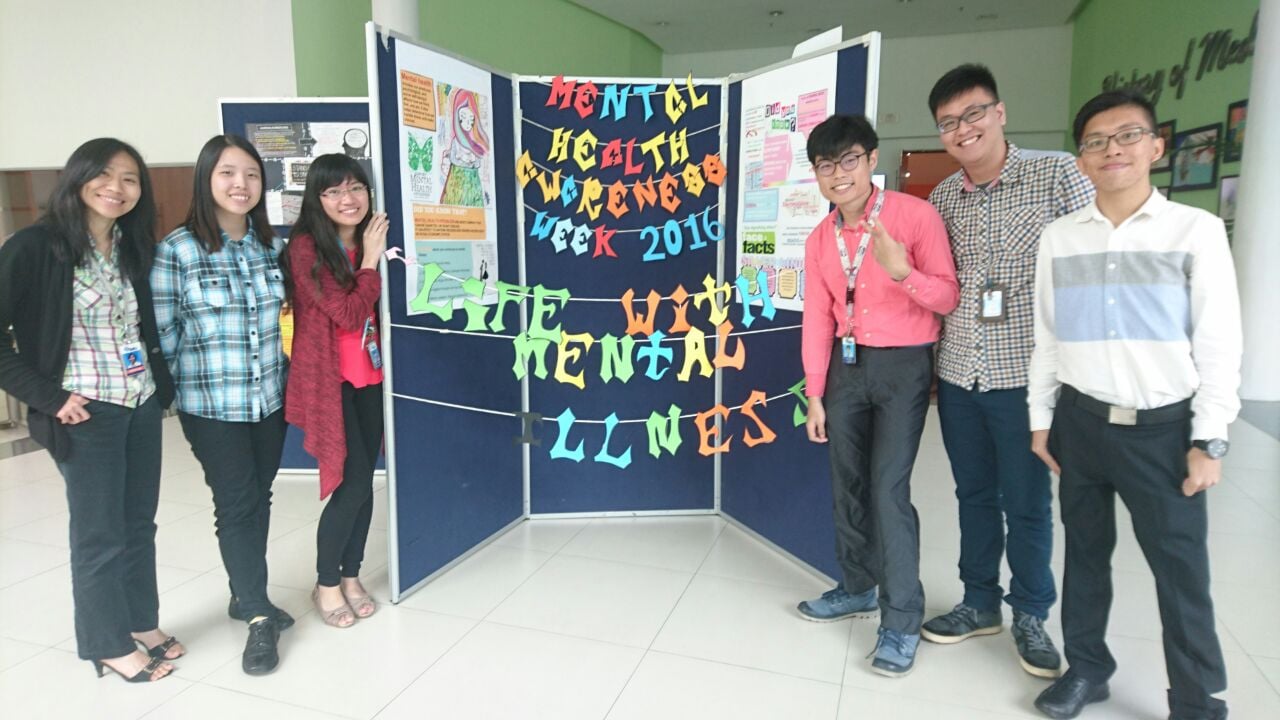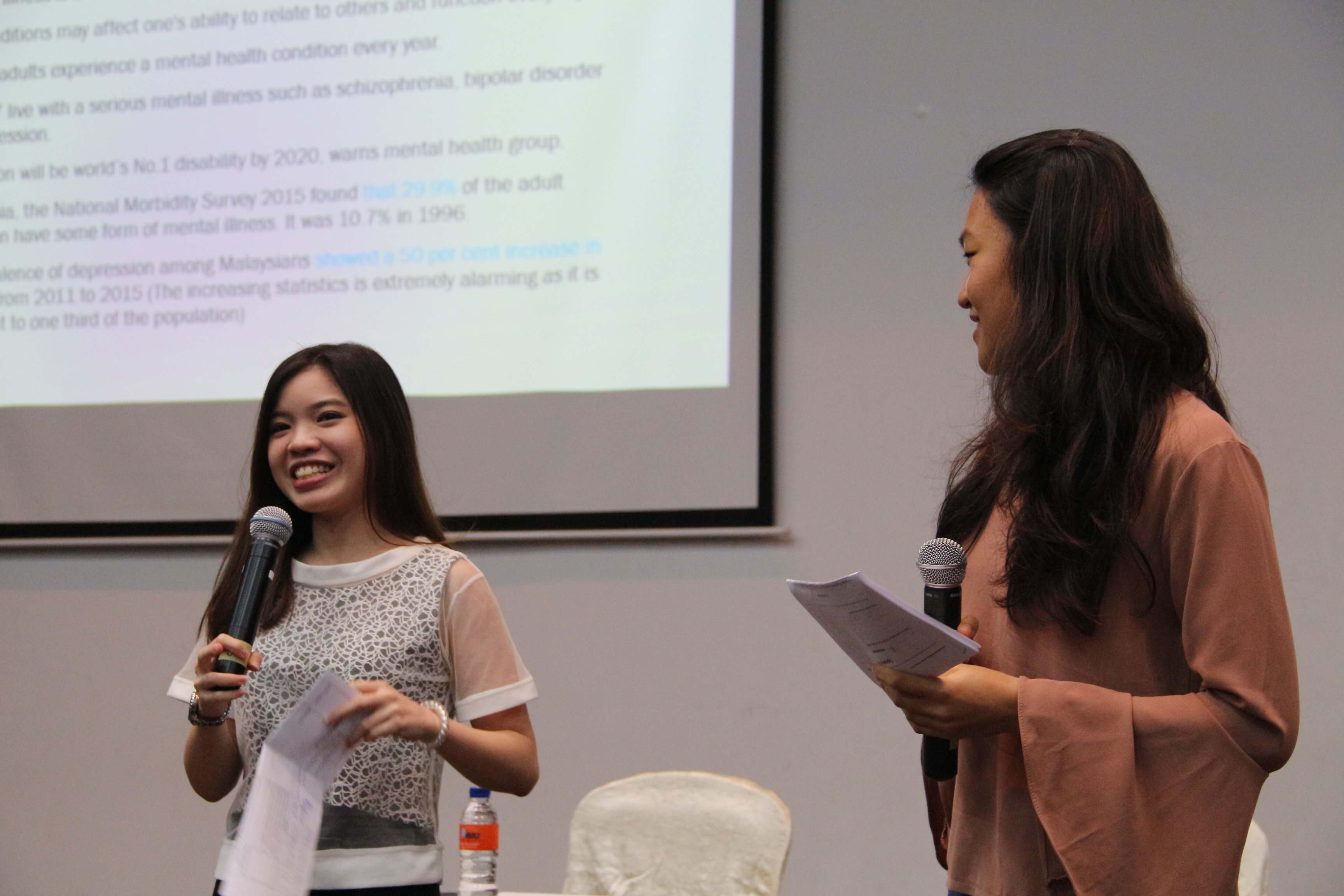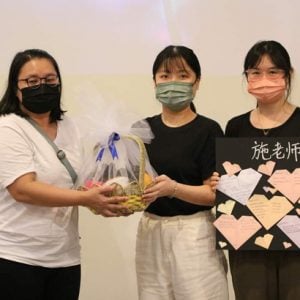IMU’s Mental Health Week is an annual activity in which the topic of mental health is raised among the IMU community. For this year’s Mental Health Week, organised by the IMU Peer Support Club Committee affiliated under IMU Self Development Unit, the theme of “Life with Mental Illness” prompted many to take a step in someone else’s shoes, and to view people suffering from mental illness for what they are – people. 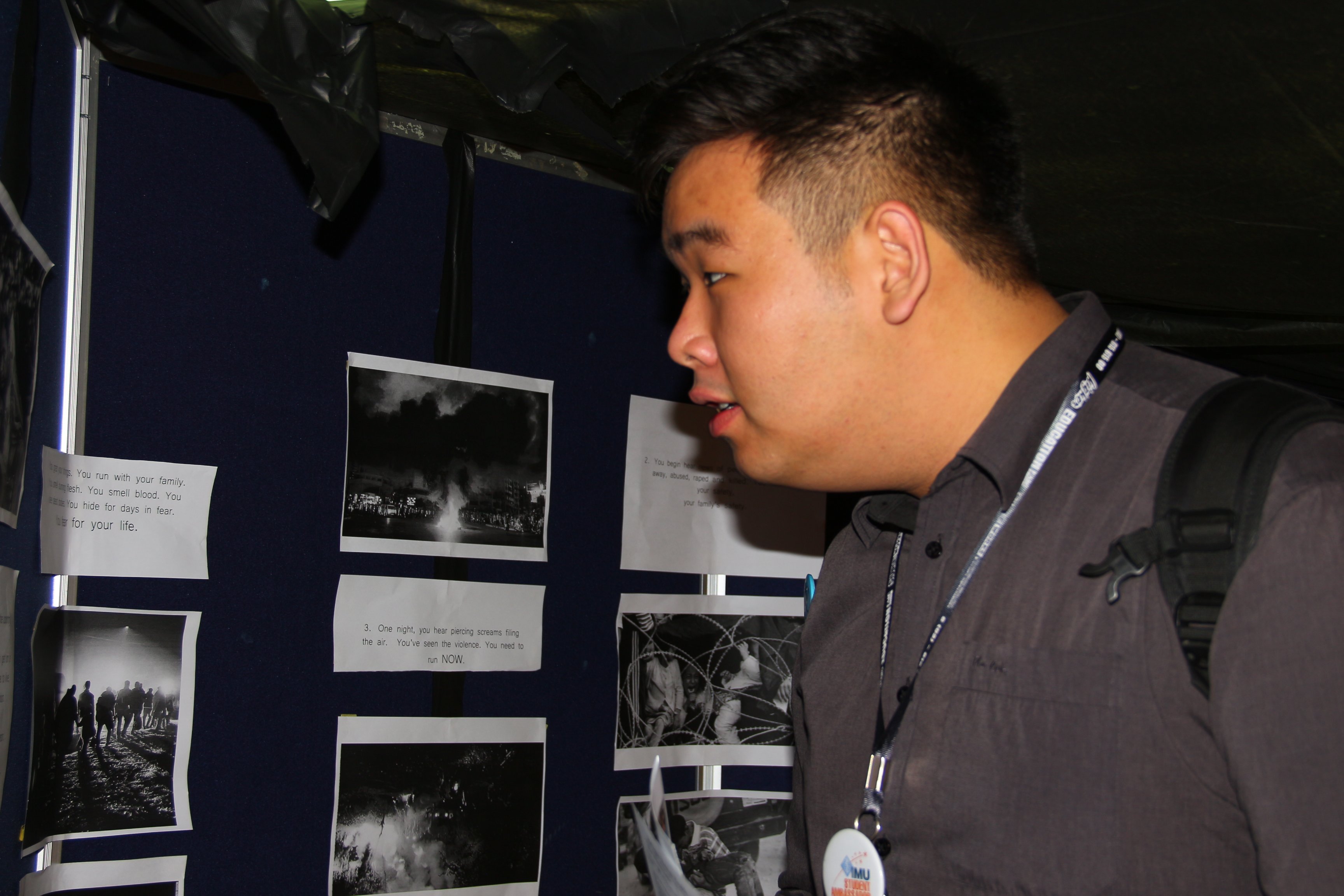
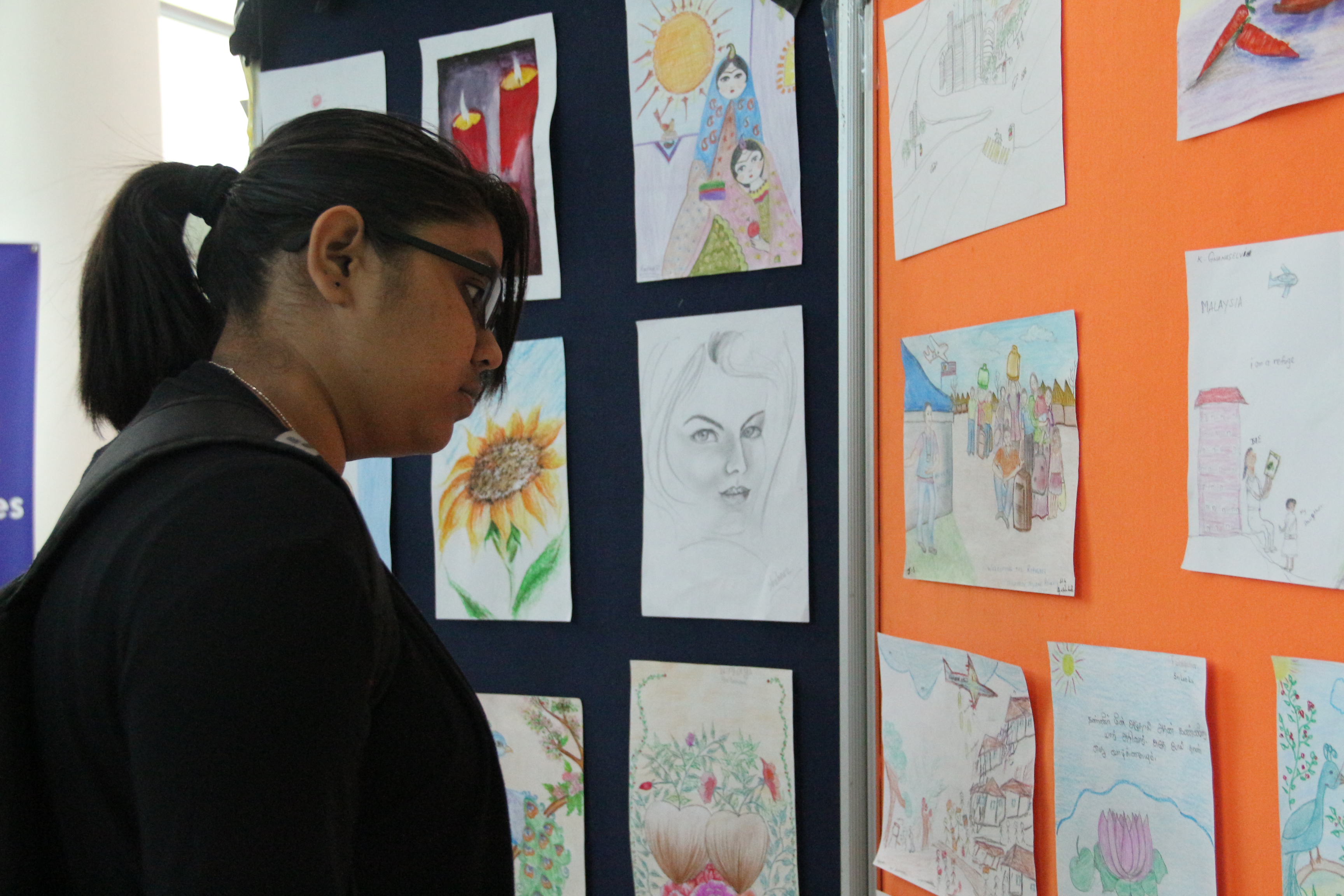 To showcase how mental illness affects people, a 3-day exhibition was held from 14 to 16 November 2016. Each day focused on a different subject, with each representing contrasting walks of life: the Student, the Working Adult and, in collaboration with Health Equity Initiatives (HEI), the Refugee. To portray the life of a student and working adult with mental illness, the exhibition was split into 4 sections, exploring topics related to one’s ‘Person’, their ‘Relationships’, how their ‘Academic/Occupational’ work is affected, and despite having mental illness, the ‘Silver Linings’ or advantages that can be developed from it. Real stories, quotes and advice from others with mental illness were also displayed, allowing participants to have a better understanding of mental illness and to learn from the experience of others.
To showcase how mental illness affects people, a 3-day exhibition was held from 14 to 16 November 2016. Each day focused on a different subject, with each representing contrasting walks of life: the Student, the Working Adult and, in collaboration with Health Equity Initiatives (HEI), the Refugee. To portray the life of a student and working adult with mental illness, the exhibition was split into 4 sections, exploring topics related to one’s ‘Person’, their ‘Relationships’, how their ‘Academic/Occupational’ work is affected, and despite having mental illness, the ‘Silver Linings’ or advantages that can be developed from it. Real stories, quotes and advice from others with mental illness were also displayed, allowing participants to have a better understanding of mental illness and to learn from the experience of others.
On 16 November, intricate paintings were displayed next to the exhibit made by a woman whose beautiful art pieces proved that mental illness was not a barrier towards the creation and appreciation of beauty in the world.
Participants who dropped by to visit the exhibits noticed that it stood not just from the viewpoint of the person with mental illness, but also from the angle of a friend, a parent, a child, and also a partner of a person with mental illness. The exhibits tied together how mental illness affected not just one person, but those around them as well.
In partnership with HEI, an NGO that provides mental health services to refugees, IMU’s Mental Health Week also gave participants the opportunity to look through the eyes of a person fleeing their country via their exhibits, set up as a “Refugee’s Journey” from their country to Malaysia and the hardships they face not only during the journey, but before and even after arriving to Malaysia, thus triggering or exacerbating any mental illness they might have. Participants were given fliers that noted the current refugee situation and its ties to mental health issues among the refugee community. Artwork by patients of HEI were hung around the exhibit, displaying the hope and determination most of them have despite the hardships they had faced. Visitors were also given the opportunity to purchase handcrafted items made by patients of HEI or to give a small donation to the organisation. Participants commented that they had gained a better insight on the refugee community and the difficulties they face, especially in terms of mental healthcare.
On 15 November, a forum on “Life with Mental Illness” was held internally. Good response was received from the IMU community where a total of over 90 students and staff attended this forum.
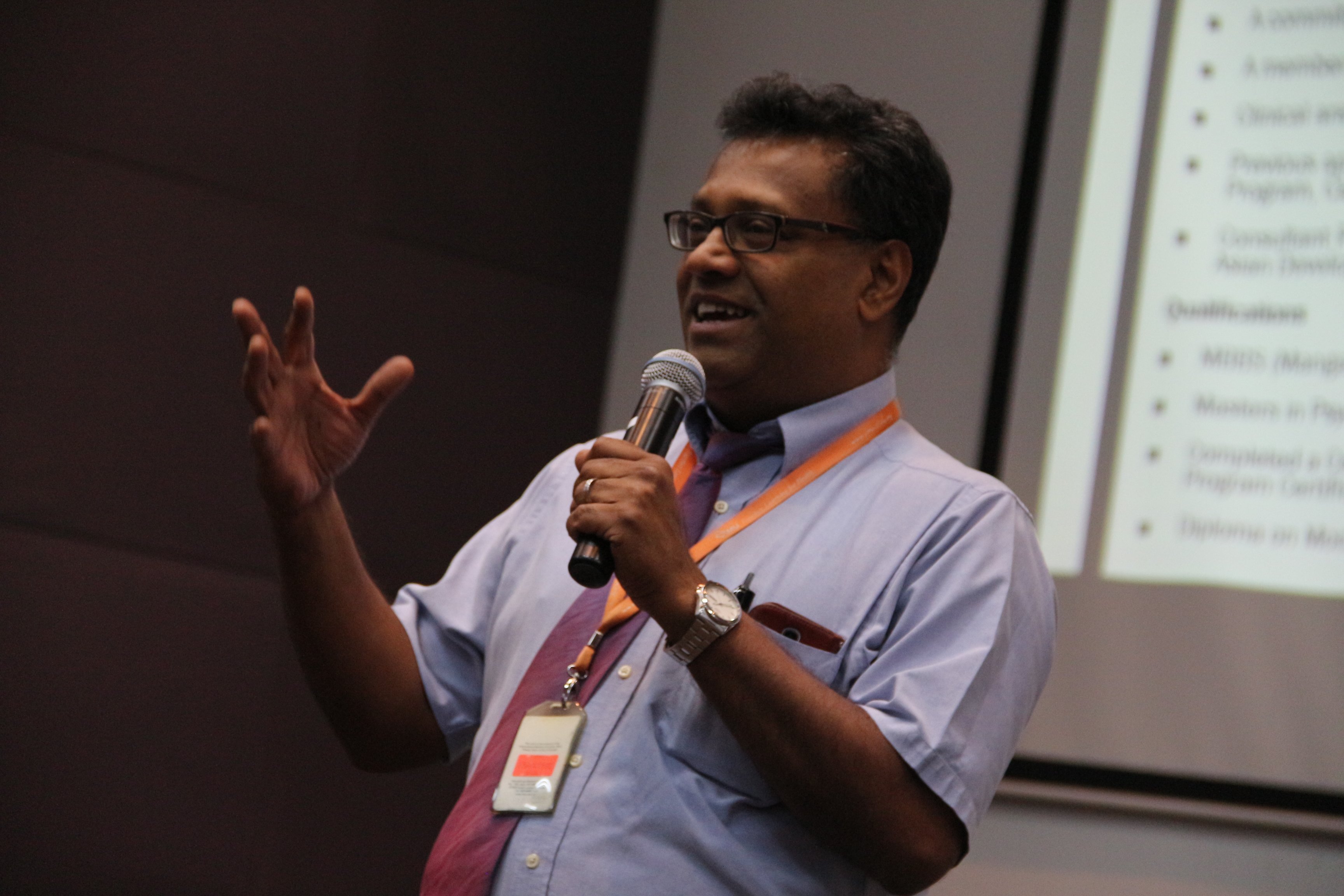 A panel of four speakers were invited to the forum. Prof Philip George, a consultant psychiatrist at IMU, shared his views and experience on medication as a treatment for mental illness along with the side effects. He provided insight about the integrative roles of healthcare professionals in supporting patients with mental health issues, instead of relying on medications alone.
A panel of four speakers were invited to the forum. Prof Philip George, a consultant psychiatrist at IMU, shared his views and experience on medication as a treatment for mental illness along with the side effects. He provided insight about the integrative roles of healthcare professionals in supporting patients with mental health issues, instead of relying on medications alone. 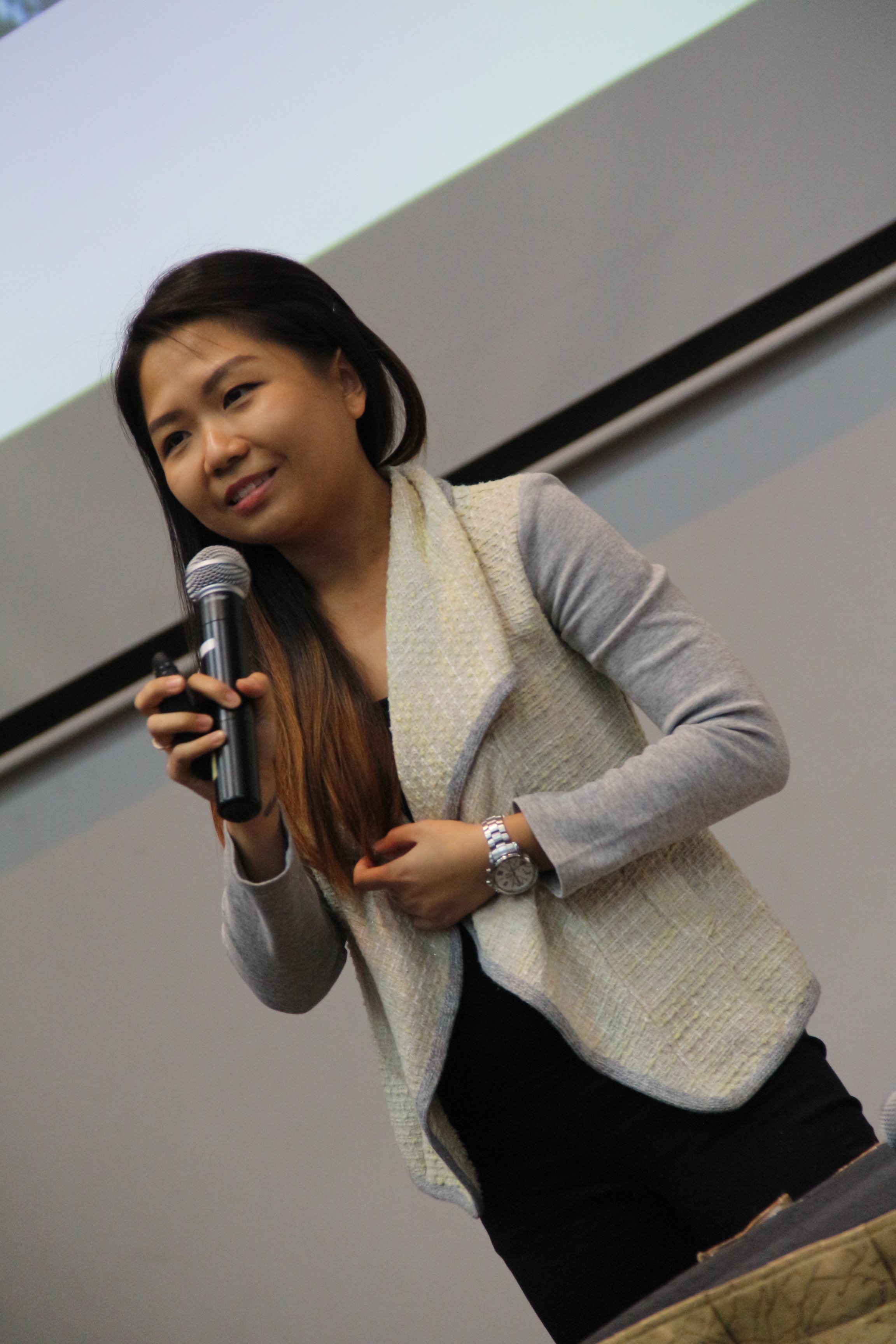 On the other hand, Evelyn Soong, a clinical psychologist from HEI, shared about her perspectives on mental health and psycho-social support for individuals with mental health issues, especially within the refugee community, to increase the awareness about discrimination by the public. Guest speakers were invited to share their experiences as a student and a refugee on their struggle with emotional distress. During their sharing, they noted that care and support from their social circle motivated them to keep moving on despite the difficulties they faced. The talks were then followed by a lively Q & A session where the speakers answered the overwhelming number of questions from the audience. Despite some questions left unanswered due to time constraints, the audience’s active participation in this session made it the highlight of the event.
On the other hand, Evelyn Soong, a clinical psychologist from HEI, shared about her perspectives on mental health and psycho-social support for individuals with mental health issues, especially within the refugee community, to increase the awareness about discrimination by the public. Guest speakers were invited to share their experiences as a student and a refugee on their struggle with emotional distress. During their sharing, they noted that care and support from their social circle motivated them to keep moving on despite the difficulties they faced. The talks were then followed by a lively Q & A session where the speakers answered the overwhelming number of questions from the audience. Despite some questions left unanswered due to time constraints, the audience’s active participation in this session made it the highlight of the event.
The session ended with the presentation of gifts as a token of appreciation to the speakers. Many positive feedbacks and encouraging support were received through the evaluation forms from the audience. Overall, the audience responded that the forum has greatly increased their understanding of mental illness and how the patients cope with their lives and difficulties.




